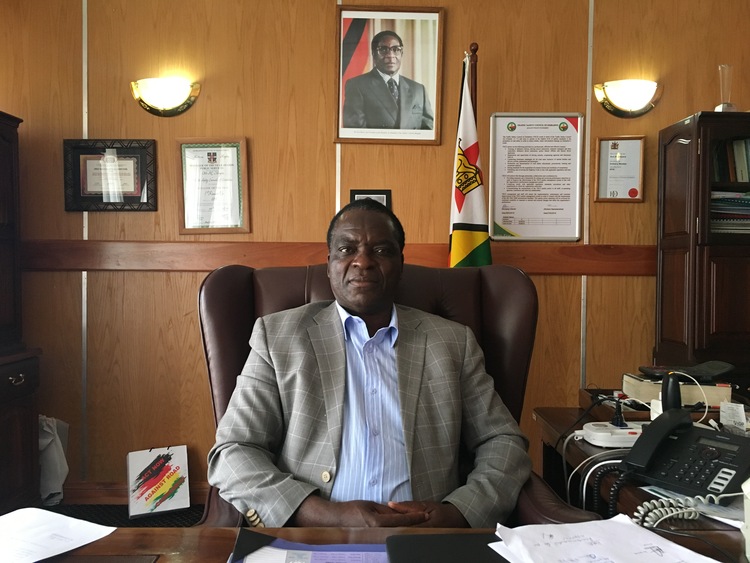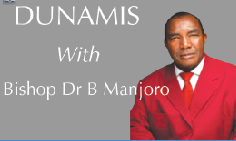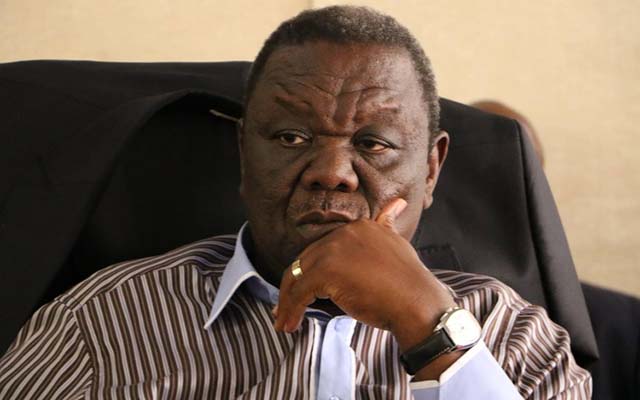‘Human error to blame for 90pc of accidents’


Mr Obio Chinyere . . . “Passengers, it is your right to arrive alive and because it is your right, if you are not happy with the way you are being ferried, please complain. If you get to a roadblock, tell the police.”
On Wednesday night, a bus travelling along the Harare- Chirundu highway en route to Zambia was involved in an accident in which 43 people lost their lives. It was only one of many such horrific accidents on Zimbabwe’s roads in recent years. The Herald’s Christopher Charamba (CC) spoke to Traffic Safety Council of Zimbabwe managing director Mr Obio Chinyere (OC) on what was causing such accidents and what drivers and passengers could do to avoid them.
CC: Mr Chinyere, there is this bus accident that took place along the Harare- Chirundu highway where 43 people lost their lives on Wednesday night. What are some of the issues that you find as the Traffic Safety Council to be the cause of such accidents? What can be done to prevent such accidents?
OC: Firstly, I want to pass my condolences to the families who lost their dear ones. I would also like to wish a speedy recover to those who were injured.
One major cause of accidents is usually speeding. From the reports that we heard from the police, we think this bus was speeding. But it’s the police who can actually state whether it was speeding or not.
The second thing is that we always encourage people to travel during the day. During the day visibility is there whereas at night your vision is somehow narrowed.
Number three, we urge drivers to listen to the passengers. From this particular incident, we are told that somebody complained in Banket that the driver was speeding and I think again in Chinhoyi and then in Karoi. So we are wondering, why didn’t the driver listen?
We also want to go further and say we would want passengers to support each other. There was a passenger who complained but it’s likely the others didn’t support this passenger. This is a situation that you often find where one passenger will complain and the others will keep quiet without knowing that maybe they could be led into an accident because the driver is speeding. So this is what we urge passengers to do.
Looking at the major causes of accidents, not specifically focusing on this one, include drinking and driving. Overloading is another one. Once you overload a vehicle, you can actually feel that you don’t have control over that vehicle.
Another cause is not adjusting your speed to suit the environment. If it’s raining, you cannot speed as if it is not raining. So the environment should be able to control or at least influence your speed. Not only the environment in terms of the weather but also the environment in terms of that particular road.
As you go down that area, after Karoi, there are so many curves and so many descents. Honestly, one needs to adjust their speed to suit that particular environment.
In some areas it could also be animals. Remember we used to have a problem from Gweru to Bulawayo, but since we erected the fences along that particular road, we haven’t experienced any vehicle-animal collisions which are also another cause of accidents.
Another cause is distraction. We encourage people not to use cell- phones. Once you get distracted, it does not take a second for you to get involved in an accident. So we urge motorists to not use their cellphones when they are on the roads.
CC: How much of a factor is the state of a road in causing an accident?
OC: When you look at statistics, we always say 90 percent of accidents are caused by human error. Remember I stated that you should drive according to the environment.
Masvingo Road does not suddenly become narrow. As you leave this place and want to drive to Masvingo, you already know what the road you are travelling on, so what it means is that you adjust your speed accordingly.
What will happen, though, is somebody wants to go to Masvingo, he will leave late and then end up speeding. The state of roads could contribute but usually the major factor is human error.
We all know that we have potholes in Harare. Do you then speed or you reduce speed accordingly? So even where there is a pothole, there is also a human element where somebody does not want to adjust their speed.
We can also talk about poor vehicle condition, for example, but who drives the vehicle which is in a poor condition? So you can see that there is that human element and why we say 90 percent of accidents are caused by human error.
If an accident is caused by a burst tyre, that is the official cause, but if you look back you’ll likely find that in the first place that tyre wasn’t even supposed to be on that vehicle. On very few occasions do you get a brand new tyre bursting.
CC: So what can be done about this human error? How do you reduce this factor, especially for drivers that ferry passengers?
OC: Number one, which is what we are doing, is to conscientise them on safe road usage. Number two, we would want the owners to have a safety culture. I’m talking about owners of passenger vehicles like kombis.
You know kombis are sometimes given targets and for somebody to meet that target, they are forced to speed. So we would also want to encourage vehicle owners to have that culture of road safety, especially when it comes to ferrying passengers. You are not ferrying goats, but passengers.
We also hope that the drivers have been for defensive driver training. Even with that, we are saying practise what we taught you. One thing we teach them is your driving should be influenced by the environment.
So we are saying to drivers, try and plan your journey in time, do not speed, do not drink and drive. Your speed should be influenced by your environment.
CC: What are the requirements for drivers who are carrying passengers and how enforceable are these requirements? One sometimes finds that drivers of kombis or these mshikashika, for example, look quite young and also might not have licences.
OC: We as Traffic Safety Council don’t enforce. Those powers lie with the police. It’s easy for those things to be enforced though. All that you need to ask for is the driver’s medicals, the fitness certificate for the particular vehicle, the defensive driving course, the relevant class on the licence, which is your Class 1.
These are easy to check at a roadblock. So we hope that is what the police are doing; when they stop vehicles those are the things they are checking for.
CC: How effective do you think these roadblocks are in terms of checking these things and enforcing the law?
OC: As you drive along main roads, you notice that you can get to a roadblock where they just wave you on and say proceed. Do you know what those roadblocks are for? They are to slow you down. But what do Zimbabweans do? After a roadblock they start speeding.
So we should not blame roadblocks. What we should blame are the drivers. Do drivers stick to the speed limits? What is the speed limit for buses? It is 80km/h. What is the speed limit for small vehicles? It is 120km/h, on main roads, that is. But do people stick to those speed limits? Who then is to blame? The drivers, not the police.
Roadblocks are not useless, they are very useful and we need them. People need to listen to what they are told at those roadblocks.
CC: What recommendations would you give to passengers especially those on public transport? What are some of the things they should look out for when it comes to their safety?
OC: Some of the things are very simple, you can actually notice for example that this tyre won’t get us to our destination. You can also tell just on appearance of the bus might not be able to get to where you want to go.
It also applies to drivers; you can see that perhaps this guy is drunk. You also mentioned that some drivers look very young. Collectively as passengers you can ask, how old are you? Because you cannot just assume that someone is 25 years old for example, what if they just have a young looking body and face?
But collectively you can ask, it is your right to do so. It’s your right to ask for passenger liability insurance. Because at the end of the day, that’s where you get your compensation from as passengers.
So what can you urge passengers to do? Passengers, it is your right to arrive alive and because it is your right, if you are not happy with the way you are being ferried, please complain. If you get to a roadblock, tell the police.
Remember I mentioned on the latest accident that we hear one passenger complained in Banket and I think another in Chinhoyi and also in Karoi. But it’s likely that passenger did not get any support from the other passengers and this is where we ended.
So we are saying, collectively, passengers can actually influence the way they are being ferried. Usually though you find with Zimbabweans, one person complains and the other ones are quiet.
CC: You mentioned compensation, and there has been this talk about a Road Accident Fund and a fuel levy to fund it. What are your thoughts on this initiative and what recommendations would you have on how it can be built and how it can be effective?
OC: On the issue of compensation, every public passenger carrying vehicle is supposed to have a passenger liability insurance cover. This is so that at the end of the day if there is an incident, people are somehow compensated. This is why I was saying it is your right to ask if that particular vehicle has got insurance.
On the Road Accident Fund, the Government in its wisdom has decided to say maybe we need to come up with a road accident fund. Why? Because, take this latest accident which has been declared a state of disaster, the Government is chipping in with $200 for each family.
First of all, is that enough? And secondly, do they have to do that every time? Imagine if we had a fund, then there would be no need for people to sit and contemplate, what do we do because that fund would clearly spell out that in the unfortunate event that there is an accident this is what will happen.
There would be a dedicated fund for road accidents and we as Traffic Safety Council we are excited. Why? Because when you look at road safety holistically, you have five pillars, the fifth of which is on post-crash care. So this is exactly what we are talking about, compensation.
The UN Charter states that every country should set up an insurance scheme to cover road accident victims and this is exactly what we are doing.









Comments